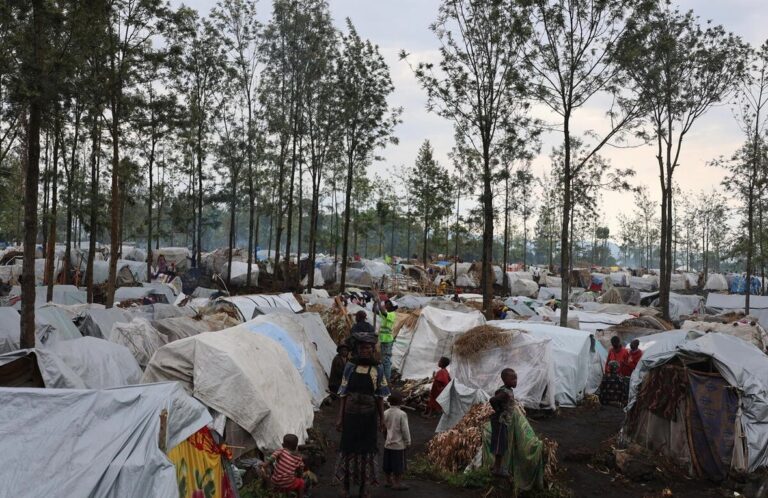
UNHCR, the UN Refugee Agency, is sounding the alarm as escalating violence and pervasive human rights abuses in the eastern provinces of the Democratic Republic of the Congo (DRC) trigger a fresh wave of displacement, both within and outside of the country.
Despite a recent ceasefire agreement in North Kivu province, UNHCR protection monitors have reported that over 90,000 people across the Rutshuru and Masisi territories were forced to flee their homes during the first weeks of October. Displaced families urgently need food, clean water, and shelter, but humanitarian access to affected populations is severely restricted due to ongoing conflicts.
South Kivu province, which sits on the periphery of the primary conflict, has become home to 260,000 internally displaced people (IDPs). Protection monitoring has revealed a dramatic deterioration of the protection environment in the province, with 8,243 human rights violations reported in September alone, including killings, lootings and rape.
Disease outbreaks, particularly cholera and measles, continue to ravage IDP sites in North Kivu, exacerbated by overcrowding and lack of drinking water. Out of the 1 million people urgently requiring tarpaulin shelters in the eastern provinces, only 115,000 have received them since June. Meanwhile, children in dozens of schools in North Kivu remain out of school as their classrooms are used to shelter displaced families.
Despite a joint declaration to ramp up the emergency response in June, humanitarian organizations working in eastern DRC have only received the funding required to reach 2.7 million of the 5.5 million people in most urgent need. UNHCR itself requires $232.6 million to adequately respond to the needs of displaced people in DRC this year, yet, to date, only 40 per cent of this amount has been received.
Faced with dire circumstances, displaced families, who would prefer to remain close to their extended family networks and livelihoods, are being forced to cross international borders. From January to August 2023, approximately 45,000 new refugees from the DRC arrived in neighbouring countries including Uganda, Tanzania, and Rwanda. In these countries, shelter and protection needs for the new arrivals are acute.
These neighbouring countries of asylum are also being impacted by severe underfunding. Medical referrals have been reduced to 70 per cent in Burundi, and the provision of all health care beyond emergency referrals to secondary care has been stopped in Rwanda. UNHCR has also ceased all cash assistance programmes for refugees in Rwanda and the World Food Programme will reduce their cash assistance for food from November. In Tanzania, soap distribution in the camps has stopped, dilapidated classrooms in schools cannot be repaired, and assistance for individuals with specific needs, survivors of gender-based violence and at-risk children has been drastically reduced.
In Uganda, there has been a reduction in the availability and level of water, sanitation, and hygiene services, which is attributed to the gap between the high rate of arrivals from the DRC and the resources available for infrastructure expansion in settlements.
The 2023 Regional Refugee Response Plan for the DRC situation, which brings together 69 humanitarian and development partners in collaboration with Governments and UNHCR, is currently funded at only 16 per cent of the required $605 million.
UNHCR urgently calls on the international community to step up efforts towards lasting peace for the DRC as well as resources needed to alleviate the suffering of displaced people in eastern DRC, and Congolese seeking refuge in neighbouring countries.
